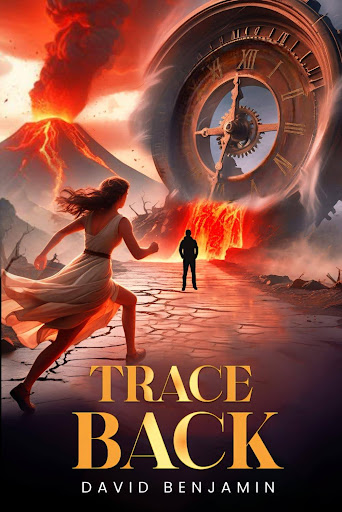What happens when your mind becomes the only witness and no one believes what it remembers?
In Traceback, the most gripping conflict isn’t between good and evil. It’s between experience and denial, memory and science, silence and the desperate need to be understood.
Rafi Ciprone-Hantz’s body may be confined to a hospital bed, but his mind is on a journey that challenges everything we think we know about consciousness, identity, and inheritance.
And the only person willing to fight for the reality of that journey?
Dr. Lucille Smith.
When Memory Becomes Evidence
Rafi isn’t just recovering from an accident. He’s reliving fragments of other lives—people long gone, scattered across centuries and continents. But he doesn’t just see them. He is them. A Jewish bride in 19th-century Lithuania. A young immigrant aboard a disease-ridden ship. A man weathering a storm so violent it nearly tears the earth apart.
None of it makes sense.
Which is exactly why it matters.
To most, these are just hallucinations. Neural noise. Trauma responses. But to Dr. Smith, a neurologist whose controversial research has made her a pariah in her own field, Rafi’s experiences aren’t aberrations.
They’re proof.
Proof that memory might be bigger than biology. That the subconscious might hold more than just your own story.
Dr. Smith’s Stand
Dr. Smith isn’t the emotional type. She’s clinical, focused, and no stranger to ridicule. Years before meeting Rafi, her work was publicly dismissed—and she was humiliated for daring to ask whether memory could extend beyond lived experience.
So when she sees what’s happening inside Rafi’s brain, she doesn’t flinch.
She leans in.
This is what she’s been waiting for: a case so extraordinary it might finally force the scientific world to reconsider what memory really is. Not imagination. Not delusion. But data, encoded in the deepest corners of the mind.
Still, no one wants to hear it. Not the hospital. Not her colleagues. Not even Rafi’s own family. To everyone else, the past should stay buried. But to Dr. Smith, dismissing Rafi’s inner world would be malpractice.
So she goes to war for the truth. Quietly. Relentlessly. And utterly alone.
The Cost of Being Right Too Soon
The tragedy of Traceback is not that Rafi’s experiences are extraordinary. It’s that they’re invisible. There’s no scar to show, no medical chart that can explain the ache of a life half-remembered.
The fight for belief becomes its own kind of trial. And both Rafi and Dr. Smith are on the stand.
One is fighting to make sense of what’s happening to him.
The other is fighting to make the world take it seriously.
Together, they challenge the institutions that decide what’s real—and what’s not.
Traceback doesn’t just ask us to suspend disbelief. It asks us to confront it.
Because how many of us have carried truths we couldn’t prove?
How many of us have been gaslit by our own minds—or dismissed by those who refused to look deeper?
That’s the soul of this story.
It’s not about time travel.
It’s about what it takes to believe in someone, when the world has already decided they’re wrong.
Traceback is fiction. But the fight to be believed? That’s heartbreakingly real.
And in Rafi’s silence and Dr. Smith’s defiance—you’ll find a story that feels all too familiar:
Not about proving the impossible.
But about refusing to forget what others want erased.
Click here to learn more.


